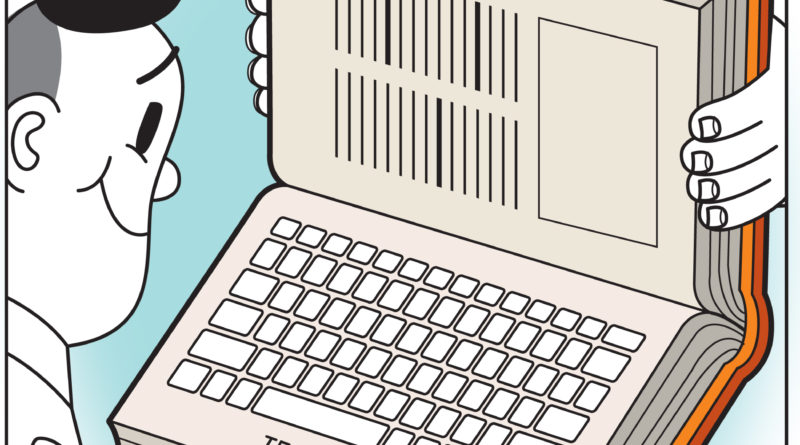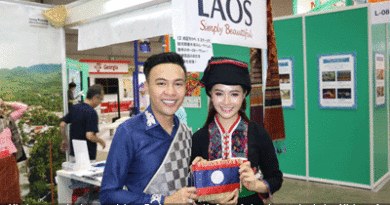COLUMNISTS: Home Front: Covid-19 pandemic shows inequality begins at home for students’ learning
Home Front
Home-based learning during the pandemic shows up how inequality affects children outside school, where some face poverty, jobless parents and domestic violence. Schooling a child requires attention beyond academics to the home environment, especially in the coming recession.
A few weeks ago, when I wrote about how schools were stepping up to help students hit by the pandemic, including providing them with meals and their families with groceries, quite a few readers expressed shock that there were children going hungry at home.
A reader who wrote in said she knows that some children are provided with meals, including breakfast, in school. But she had thought it was to make up for the lack of proper nutrition at home, not because there was no food at home.


Memento MaximaDigital Mktg.
@ [email protected]
RESERVE ADVERTISEMENT
.
The retired accountant, who lives with her son and daughter-in-law as well as their two primary school-going children, said the pandemic has opened her eyes to profound disparities in children’s access to support and opportunities outside of school.
“I was shocked to read about children calling their teachers to ask for food. My two grandkids, on the other hand, have delicious home-cooked meals – and their parents, who are both working from home – are arranging all kinds of interesting activities for them. They are flourishing, and we are beginning to think it may not be a bad idea to have more home-based learning,” she said.
For my article, I interviewed several students whose parents are from varying income and educational levels. It was clear that some students will not lose any ground with schools moving to online learning during the coronavirus crisis.
Two children talked excitedly about the apps they are creating with their parents. A 12-year-old boy talked about designing an indoor herb garden with his mother. Quite a few students were attending group or one-to-one online tuition.
One group of five parents had hired a maths tutor – a university lecturer, no less – to provide maths enrichment activities and conduct a maths competition, all online.


Memento MaximaDigital Mktg.
@ [email protected]
RESERVE ADVERTISEMENT
.
Conversely, the students from disadvantaged homes were filled with worry instead of excitement – over their parents having lost their jobs, and not having enough to eat.
A 10-year-old boy expressed worry over his unemployed dad “being angry all the time and shouting” at his mother.
His 12-year-old brother, who supervises him and his eight-year-old sister as they do their online learning, said he felt overwhelmed about having to supervise his siblings. He was also anxious over the possibility of his dad harming his mother.
Singaporeans tend to think of our education system as a uniform system – after all, our schools are staffed and resourced well and fairly.
But outcomes still vary considerably, as the children come from very different backgrounds and have different resources, opportunities and support outside of school.
Now, because of schools closing and learning moving online and into the home, these differences and disparities have become apparent.


Memento MaximaDigital Mktg.
@ [email protected]
RESERVE ADVERTISEMENT
.



Memento MaximaDigital Mktg.
@ [email protected]
RESERVE ADVERTISEMENT
.
CLOSING THE GAP
So, what do we do about closing these gaps?
The best that can come of this crisis is a shift in the way we look at providing the world-class education that Singapore is known for. We must accept the fact – as the pandemic has shown – that children’s well-being and success depend on more than just what happens in school.
To help lift children from disadvantaged homes, we need to look holistically at the entirety of the children’s lives.
KidStart, the government programme for children up to six years old from low-income families, takes this expanded approach to enable them to have a good start in life.
The programme has to be extended to primary and secondary schools, and social workers extending help to these children have to work hand in hand with schools.


Memento MaximaDigital Mktg.
@ [email protected]
RESERVE ADVERTISEMENT
.
No doubt, some may ask if schools burdened with attending to their students’ learning needs should also be tasked with helping them in other ways, including providing food to their families and looking into their worries over their parents losing their jobs or suffering abuse.
There is no way around this – if we want children to learn better, schools


Memento MaximaDigital Mktg.
@ [email protected]
RESERVE ADVERTISEMENT
.
and other agencies helping children have to find ways to help their families. After all, their parents are their primary caregivers.
A child worried about food or safety, or the loss of his parent’s job, is not going to be able to absorb much learning, online or offline.
The Ministry of Education (MOE) must be applauded for staffing schools with welfare officers and counsellors in recent years, but family service centres and voluntary welfare organisations must also be resourced to coordinate and work hand in hand with schools.
Importantly, the help must be long-term and not just one-off, if it is to lift the lives of children caught in the cycle of poverty.


Memento MaximaDigital Mktg.
@ [email protected]
RESERVE ADVERTISEMENT
.
DIGITAL DIVIDE
Let’s take the help extended for online learning during this crisis.
Once the Government announced school closures and the move to home-based learning, schools moved quickly, finding out which students needed laptops and tablets, and whether they had stable Internet connections at home.
They dug into their stockpile of devices and sourced more. By the end of last month, more than 1,200 routers and 20,000 laptops and tablets had been lent to children for them to do home-based learning.
But we need to look into providing these resources on a long-term and permanent basis. After all, 21st century learning requires technology and Internet access. We can’t leave this to chance – or worse, another pandemic – before taking action.
Information and communication technology has revolutionised virtually every aspect of our lives. Students and workers unable to navigate a complex digital landscape will not be able to participate fully in the economic, social and cultural life around them.


Memento MaximaDigital Mktg.
@ [email protected]
RESERVE ADVERTISEMENT
.
Without the right skills, these young people will be unable to deal with the challenges of the future world of work.
Nominated MP Anthea Ong, in Parliament this week, called for Internet access to be provided as a public utility; her proposal that the Government’s free Wi-Fi service be extended to cover all rental flats merits consideration.
During their closure, some schools held classes for parents who came to pick up the laptops and tablets that would be lent to their children for home-based learning. The parents were also given tips on how to support their children at home.
Again, more schools need to do this, and on a sustained basis.
Schools also rallied together to remain open so that children who depend on the subsidised school meal programme could continue to go to school and not go hungry at home, while others who lacked a conducive environment for learning at home could also go back to their schools to study.
In Singapore, a patchwork of social service organisations helps needy families and individuals.
These agencies, along with the Ministry of Social and Family Development, should work more closely with the MOE and schools to coordinate and build on one another’s programmes.
This will multiply the benefits for children.
Beyond help with digital access and meals, good, effective parenting is key to success in life for children.


Memento MaximaDigital Mktg.
@ [email protected]
RESERVE ADVERTISEMENT
.
The most effective programmes to help disadvantaged children are those that supplement the parenting resources available to the children and provide “scaffolding” for them by giving them the same sort of nurturing environments available to children in more advantaged families.
Student care centres, many of them sited in primary schools, do a commendable job in supporting disadvantaged children.
The staff provide the children with meals, homework supervision and additional activities, as well as a listening ear.
The capacity and quality of care at the centres can be boosted further.
There are things we can learn from the messiness of adapting to the changing circumstances of this coronavirus crisis.
The inequities in children’s lives outside school are not new; educators and social organisations that focus their efforts on children know that these problems have existed forever. What has happened is that media headlines on the effects of the pandemic have laid bare these hard realities to the public.
The hope is that this awareness of inequities will create a new sense of urgency to address them. It must be done in order for Singapore to realise its ambitious goal of enabling all its citizens to realise their fullest potential.
The oncoming economic recession brought on by the pandemic adds urgency to the task.
.


SIGN UP TO RECEIVE OUR EMAILThe most important news of the day about the ASEAN Countries and the world in one email: [email protected]
.










